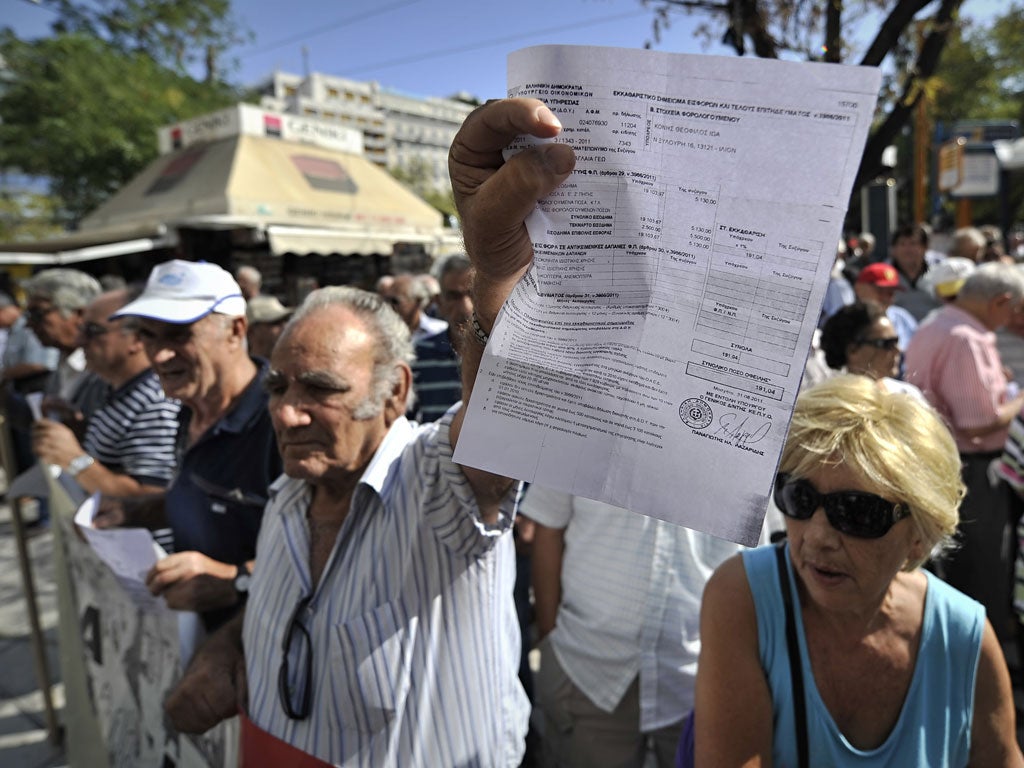
Your support helps us to tell the story
From reproductive rights to climate change to Big Tech, The Independent is on the ground when the story is developing. Whether it's investigating the financials of Elon Musk's pro-Trump PAC or producing our latest documentary, 'The A Word', which shines a light on the American women fighting for reproductive rights, we know how important it is to parse out the facts from the messaging.
At such a critical moment in US history, we need reporters on the ground. Your donation allows us to keep sending journalists to speak to both sides of the story.
The Independent is trusted by Americans across the entire political spectrum. And unlike many other quality news outlets, we choose not to lock Americans out of our reporting and analysis with paywalls. We believe quality journalism should be available to everyone, paid for by those who can afford it.
Your support makes all the difference.An anti-tax rebellion is brewing in Greece, where the embattled government continues to bring in new spending cuts and tax rises. Now, even elected local officials are joining the fray in a seemingly random but increasingly prevalent wave of civil disobedience.
Working on the theory of strength in numbers, authorities in the sizeable Nea Ionia district of Athens are urging residents not to pay a hated new property tax which is charged through electricity bills. The local council has now posted instructions on its website on how to pay an electricity bill without handing over the levy.
Furious at a plan that, they say, turns them into back-up tax collectors, employees of the state power company have vowed to prevent people having their electricity cut off – and to reconnect vulnerable groups, such as the elderly or unemployed, if need be. Legal help could be on hand soon, too. The Athens Bar Association appealed to the Council of State last week to have the law repealed.
And Nea Ionia is not alone. Groups of lawyers, trade unions and campaigners have tried to derail government efforts to suspend tens of thousands of civil servants on partial pay. State buildings have been occupied, municipalities have stalled in ordering strikers back to work and state enterprises have refused to hand over lists of employees eligible for suspension.
The backlash comes alongside strikes so frequent that everyone from rubbish collectors to bakers, dentists to air traffic controllers, has walked off the job at some point.
Join our commenting forum
Join thought-provoking conversations, follow other Independent readers and see their replies
Comments